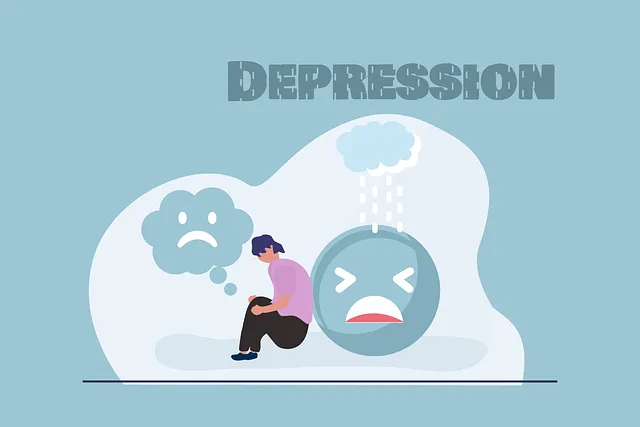Lone Tree Kaiser mental health classes utilize positive thinking and a holistic approach to transform individuals' mental well-being, addressing stress management, social connection building, and stigma reduction. These classes teach practical strategies like mindfulness, gratitude exercises, and cognitive reframing, fostering cultural sensitivity and empowerment. Through interactive activities, professionals can help participants cultivate optimism, overcome negativity, and build emotional resilience, contributing to a more supportive community free from mental illness stigma.
Positive thinking exercises offer a powerful tool for enhancing mental well-being, particularly within communities like Lone Tree Kaiser mental health classes. This article explores strategies for implementing these practices, focusing on understanding the science behind positive thinking and its benefits. We’ll guide you through designing effective exercises tailored to the unique needs of Lone Tree Kaiser clients, as well as integrating and sustaining these practices for long-term mental health improvement.
- Understanding Positive Thinking: Unlocking Mental Well-being
- Designing Effective Exercises for Lone Tree Kaiser Mental Health Classes
- Integrating and Sustaining Positive Thinking Practices
Understanding Positive Thinking: Unlocking Mental Well-being

Positive thinking is a powerful tool that can significantly impact an individual’s mental well-being. At Lone Tree Kaiser mental health classes, we delve into this concept to help individuals unlock their innate resilience and foster a more optimistic outlook on life. Understanding positive thinking goes beyond mere optimism; it involves challenging negative thought patterns and replacing them with constructive alternatives. This process empowers people to navigate life’s challenges with greater ease, enhancing their overall emotional balance and mental fortitude.
By incorporating practices such as mindfulness, gratitude exercises, and cognitive reframing, our classes equip participants with practical strategies for managing stress and anxiety relief. We also emphasize the importance of cultural sensitivity in mental healthcare practice, ensuring that everyone feels heard and supported regardless of their background or beliefs. This holistic approach to positive thinking not only promotes individual growth but also fosters a sense of community and understanding among class members.
Designing Effective Exercises for Lone Tree Kaiser Mental Health Classes

Designing effective exercises for Lone Tree Kaiser mental health classes requires a nuanced approach tailored to the diverse needs and challenges faced by participants. Mental wellness is a multifaceted concept, and the exercises should be designed to address various aspects of mental health, from stress management and resilience-building to fostering social connections and reducing stigma associated with mental illness. Incorporating interactive activities, mindfulness practices, and positive thinking strategies can significantly enhance the impact of these classes.
When creating exercises for Lone Tree Kaiser mental health classes, it’s crucial to consider the specific context and goals. For instance, risk assessment for mental health professionals plays a vital role in ensuring safe and supportive learning environments. Exercises should promote self-awareness, encourage open communication, and offer practical tools for managing stress and preventing burnout. By integrating these elements effectively, the classes can contribute to meaningful Mental Illness Stigma Reduction Efforts, creating a more inclusive and understanding community.
Integrating and Sustaining Positive Thinking Practices

Integrating positive thinking practices into daily routines is a powerful tool for enhancing emotional well-being and fostering mental resilience. For those seeking to sustain this approach, Lone Tree Kaiser mental health classes offer valuable guidance. These sessions provide individuals with strategies to overcome negativity and cultivate a more optimistic mindset. Through various exercises, participants learn to challenge negative thought patterns and replace them with positive affirmations, fostering a sense of inner calm and clarity.
Sustaining these practices requires commitment and consistency. Regularly scheduled Lone Tree Kaiser mental health classes cater to this need by offering ongoing support. The classes encourage individuals to incorporate emotional well-being promotion techniques into their routines, serving as effective burnout prevention strategies for healthcare providers too. By addressing the Mental Illness Stigma Reduction Efforts, these sessions empower participants to share their experiences and inspire positive changes in their communities.
Implementing positive thinking exercises in Lone Tree Kaiser mental health classes has shown significant potential in enhancing participants’ mental well-being. By designing and integrating these practices, individuals learn valuable tools to navigate life’s challenges with a more optimistic mindset. Sustaining these habits can lead to improved resilience and overall happiness, fostering a healthier and happier community within the Lone Tree Kaiser mental health program.






